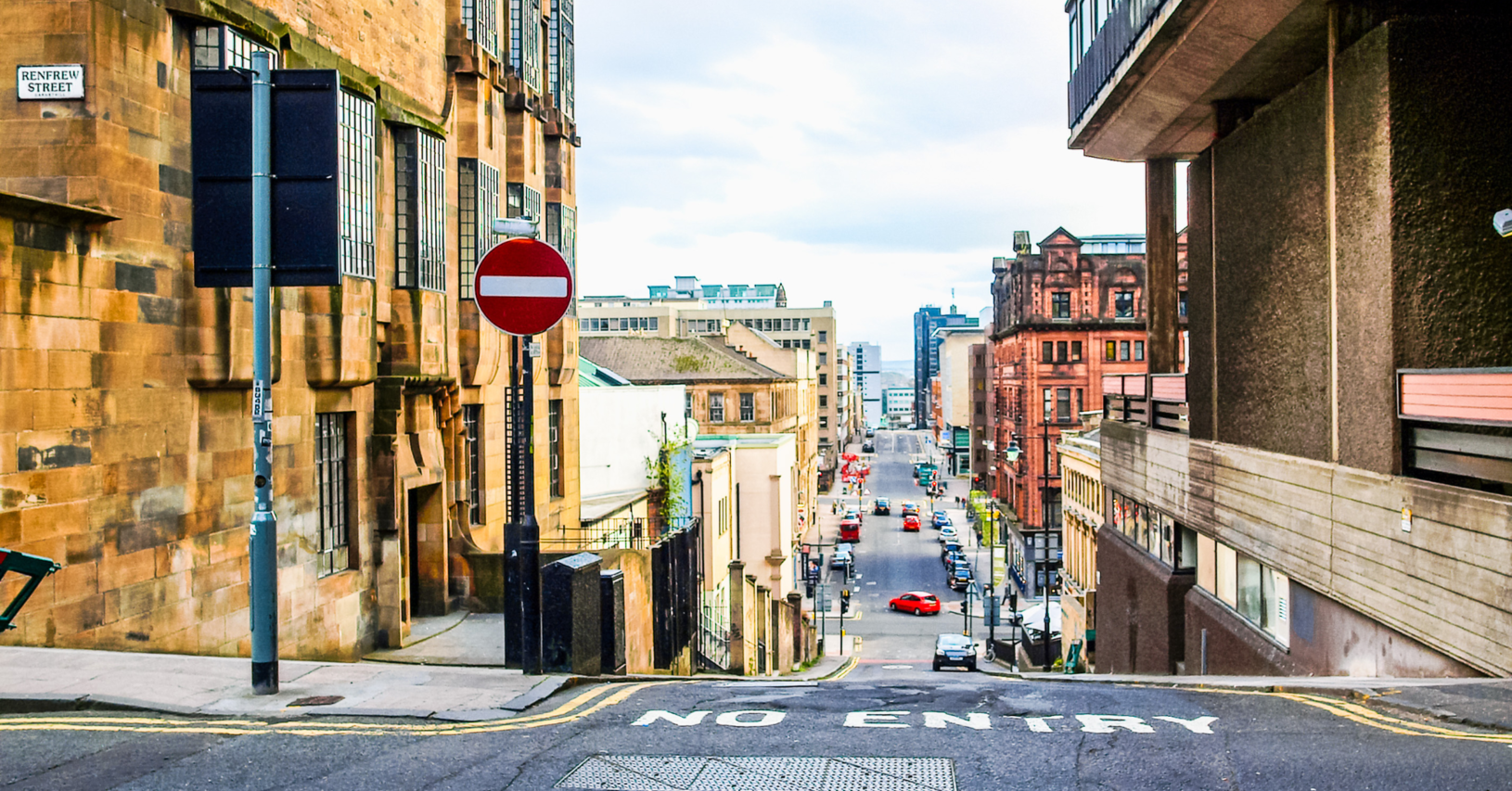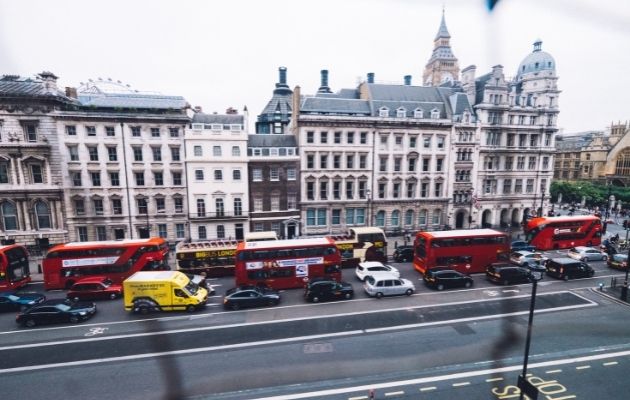
Both Greater Manchester and Birmingham have released proposals to establish clean air zones - but which one is more likely to have a long term effect?

Glasgow’s progressive approach to cutting transport emissions is a step in the right direction for the city – one that other cities could learn from and build on.
Glasgow’s Low Emission Zone (LEZ) comes into force today, meaning all vehicles entering the zone will need to meet emissions standards or face a penalty charge. Glasgow has been operating a bus-only LEZ since 2018 and will become the first city to use powers granted in the Transport (Scotland) Act 2019 to extend coverage to private cars, marking a bold move for the city.
Here’s why Glasgow’s progressive approach to cutting transport emissions is a step in the right direction for the city – one that other cities could learn from and build on.
Glasgow will be the first of four Scottish cities to begin enforcing its year-round LEZ, with Aberdeen, Dundee and Edinburgh following in 2024. Covering the city centre area, the zone will operate 24/7 with a penalty of £60 for non-compliance, although local residents remain exempt until 2024.
The decision to charge private cars places the four Scottish cities alongside Birmingham, Bristol and London as the only cities to charge private vehicles, but Glasgow is going a step further by charging a penalty for non-compliant vehicles which enter the zone, effectively banning these vehicles, as opposed to having more polluting vehicles pay a daily charge for the right to enter the zone as is the case in other cities.
Transport emissions in the form of nitrogen dioxide (NO2) and particulate matter (PM2.5) are a key contributor to air pollution, which can lead to serious health problems – air pollution is responsible for more than 20,000 hospital admissions a year according to the Royal College of Physicians.
Glasgow has a particularly poor record on air pollution, and transport is largely responsible, accounting for more than half of the city’s NO2 emissions in 2019. As shown below, the city is one of 15 UK cities where more than 10 percent of roads breach the legal limit for NO2 concentrations, and the worst performing city in Scotland.
This also points to the links between transport and inequality in the city. Almost half of Glasgow City Region residents do not have access to a private vehicle, yet it is often low-income households such as these who are disproportionately affected by poor air quality and least able to access alternative forms of transport.
Glasgow also needs the LEZ to support the city’s – and Scotland’s – net zero ambitions. Emissions from transport are Scotland’s single largest source of greenhouse gases, accounting for 36 percent of the total in 2018. The LEZ is therefore simultaneously an effective policy to improve air quality locally, and make national progress on reducing carbon emissions.
The experience from other UK cities suggests the answer is ‘yes’. In London, roadside concentration of NO2 went down by 44 percent between 2017 and 2019. Within six months of the ULEZ expansion in October 2021, 94 percent of the vehicles were compliant. Similarly, in Birmingham, interim reports show an average 13 percent reduction in NO2 levels within the zone between 2019 and 2021 while compliance levels increased steadily over the same period.
Furthermore, Glasgow’s bus-only LEZ has already shown the policy can have a significant and rapid impact on improving air quality. Data from the Scottish Environmental Protection Agency shows that NO2 levels along key bus corridors fell in 2022 to the lowest levels outside of the pandemic.
There are valid concerns around a disproportionate impact on lower-income households and small businesses that cannot afford less-polluting vehicles or alternative forms of transport, but these can be addressed via supportive policies. Similar to London’s scrappage scheme, the Scottish Government will provide means-tested disposal grants for non-compliant vehicles and support towards purchasing a more sustainable vehicle or alternative form of transport, or retrofitting for existing vehicles.
These supportive policies should be combined with careful monitoring of the impact on footfall and business in the zone and potential displacement of non-compliant vehicles to surrounding neighbourhoods.
By including private vehicles in the LEZ and opting for a penalty for non-compliant vehicles instead of an entrance charge, Glasgow has taken a bold step in addressing air pollution, and set an example that other cities should follow.
The LEZ also has significant potential to boost the city’s progress on net zero, with vehicle emissions accounting for almost one-third of Glasgow’s carbon output and almost 8 percent of the total distance travelled by car in Scotland falling within Glasgow.
Glasgow will need to go further still to make significant progress on net zero targets. Nearly a third of people in the city commute by private car and the LEZ does little to disincentivise car use, only encourage drivers to switch to less-polluting vehicles and EVs. These still emit harmful PM2.5, place considerable demand on energy resources, and take up space that could otherwise be used for bus lanes or segregated cycling infrastructure.
Next, Glasgow should focus on reducing private vehicle usage and encouraging public and active transport. The LEZ must therefore be accompanied by investment in public transport, particularly in affordable and reliable bus services that meet the needs of low-income households. Glasgow should also take advantage of its comparatively large existing public transport network by developing around existing transport connections and moving towards a denser built environment, thereby increasing the number of residents able to opt for public and active transport.

Both Greater Manchester and Birmingham have released proposals to establish clean air zones - but which one is more likely to have a long term effect?

Extending London’s Ultra-Low Emission Zone across the Capital will have been a politically tough decision, but it is the right one to make.

While the decision to extend London’s Ultra-Low Emission Zone (ULEZ) may be politically difficult, it is both timely and necessary.

Air pollution remains a killer, and cities should not push their plans to tackle it into the long grass.
Leave a comment
Be the first to add a comment.